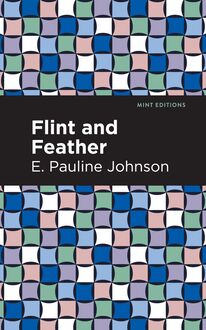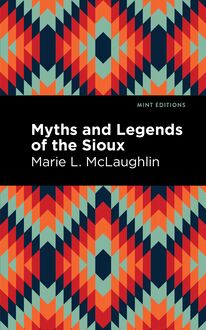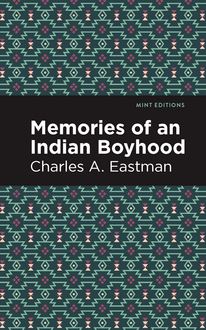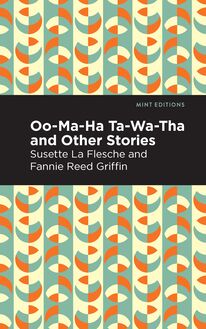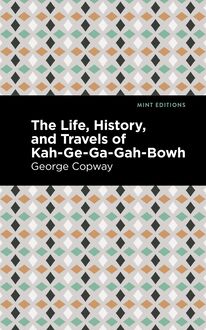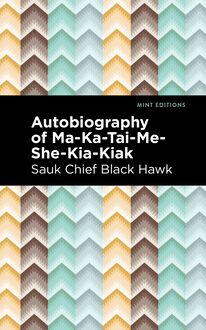-
 Univers
Univers
-
 Ebooks
Ebooks
-
 Livres audio
Livres audio
-
 Presse
Presse
-
 Podcasts
Podcasts
-
 BD
BD
-
 Documents
Documents
-
- Cours
- Révisions
- Ressources pédagogiques
- Sciences de l’éducation
- Manuels scolaires
- Langues
- Travaux de classe
- Annales de BEP
- Etudes supérieures
- Maternelle et primaire
- Fiches de lecture
- Orientation scolaire
- Méthodologie
- Corrigés de devoir
- Annales d’examens et concours
- Annales du bac
- Annales du brevet
- Rapports de stage
La lecture à portée de main
Vous pourrez modifier la taille du texte de cet ouvrage
Découvre YouScribe en t'inscrivant gratuitement
Je m'inscrisDécouvre YouScribe en t'inscrivant gratuitement
Je m'inscrisEn savoir plus
Vous pourrez modifier la taille du texte de cet ouvrage
En savoir plus

Description
A Century of Dishonor (1884) is a work of nonfiction by Helen Hunt Jackson. Inspired by a speech given by Ponca chief Standing Bear in Boston, A Century of Dishonor attempts to reckon with the genocide and displacement of Native Americans and the passage of Indian Appropriations Act of 1871. At her own expense, Hunt Jackson sent copies of the book to every member of Congress, hoping to convince them to amend official government policies and to end the mistreatment of indigenous peoples across the country. Largely dismissed upon publication, the book managed to galvanize a minority of white Americans in solidarity with Native people nationwide and led to some minor government reforms. After meeting Standing Bear in 1879, Hunt Jackson spent months at Manhattan’s Astor Library to compile research on the treatment of Native Americans. Using government reports and personal testimonies, she weaves a story of seven tribes whose treaties with the United States were broken, who were removed from their ancestral lands, and whose people were massacred by settlers and military forces. She provides background on the histories and cultures of the Delaware, Cheyenne, Nez Perce, Sioux, Ponca, Winnebago, and Cherokee peoples, arguing that their way of life had a vital impact on the formation of the United States. Crucially, she cites statistics directly from the War Department and the Department of Interior which show that the government openly pursued a campaign of violence against Native Americans. She argues: “It makes little difference, however, where one opens the record of the history of the Indians; every page and every year has its dark stain.” Providing the incontrovertible facts of the nation’s actions, its dishonorable conduct, she demands not just answers, but change. That her activism was largely ignored remains tragic. With a beautifully designed cover and professionally typeset manuscript, this edition of Helen Hunt Jackson’s A Century of Dishonor is a classic of American literature reimagined for modern readers.
Sujets
Informations
| Publié par | Mint Editions |
| Date de parution | 21 mai 2021 |
| Nombre de lectures | 0 |
| EAN13 | 9781513287706 |
| Langue | English |
Informations légales : prix de location à la page 0,0500€. Cette information est donnée uniquement à titre indicatif conformément à la législation en vigueur.
Extrait
A Century of Dishonor
Helen Hunt Jackson
A Century of Dishonor was first published in 1881.
This edition published by Mint Editions 2021.
ISBN 9781513282688 | E-ISBN 9781513287706
Published by Mint Editions®
minteditionbooks .com
Publishing Director: Jennifer Newens
Design & Production: Rachel Lopez Metzger
Project Manager: Micaela Clark
Typesetting: Westchester Publishing Services
C ONTENTS P REFACE , BY B ISHOP W HIPPLE I NTRODUCTION , BY P RESIDENT J ULIUS H. S EELYE A UTHOR ’ S N OTE I. I NTRODUCTORY II. T HE D ELAWARES III. T HE C HEYENNES IV. T HE N EZ P ERCÉS V. T HE S IOUX VI. T HE P ONCAS VII. T HE W INNEBAGOES VIII. T HE C HEROKEES IX. M ASSACRES OF I NDIANS BY W HITES I. The Conestoga Massacre II. The Gnadenh ü tten Massacre III. Massacres of Apaches X. C ONCLUSION A PPENDIX I. T HE S AND C REEK M ASSACRE II. T HE P ONCA C ASE III. T ESTIMONIES TO I NDIAN C HARACTER IV. O UTRAGES C OMMITTED ON I NDIANS BY W HITES V. E XTRACTS FROM THE R EPORT OF THE C OMMISSION S ENT TO T REAT WITH THE S IOUX C HIEF , S ITTING B ULL , IN C ANADA VI. A CCOUNT OF S OME OF THE O LD G RIEVANCES OF THE S IOUX VII. L ETTER FROM S ARAH W INNEMUCCA , AN E DUCATED P AH -U TE W OMAN VIII. L AWS OF THE D ELAWARE N ATION OF I NDIANS IX. A CCOUNT OF THE C HEROKEE W HO I NVENTED THE C HEROKEE A LPHABET X. P RICES P AID BY W HITE M EN FOR S CALPS XI. E XTRACT FROM T REATY WITH C HEYENNES , IN 1865 XII. W OOD -C UTTING BY I NDIANS IN D AKOTA XIII. S EQUEL TO THE W ALLA W ALLA M ASSACRE XIV. A N A CCOUNT OF THE N UMBERS , L OCATION , AND S OCIAL AND I NDUSTRIAL C ONDITION OF E ACH I MPORTANT T RIBE AND B AND OF I NDIANS WITHIN THE U NITED S TATES XV. R EPORT ON THE C ONDITION AND N EEDS OF THE M ISSION I NDIANS OF C ALIFORNIA I NDEX OF E XHIBITS A. L EGAL BRIEF OF B RUNSON & W ELLS B. S ABOBA C. T HE C AHUILLA R ESERVATION D. T HE W ARNER ’ S R ANCH I NDIANS E. T HE S AN Y SIDRO I NDIANS F. T HE L OS C OYOTES G. T HE S ANTA Y SABEL R ANCH H. M ESA G RANDE I. C APITAN G RANDE J. T HE S EQUAN I NDIANS K. T HE C ONEJOS L. P ALA AND ITS N EIGHBORHOOD M. T HE P ACHANGA I NDIANS N. T HE D ESERT I NDIANS O. T HE S AN G ORGONIO R ESERVATION P. T HE P AUMA R ANCH Q. P ROPOSITION FOR THE S ALE OF THE S ANTA Y SABEL R ANCH TO THE U NITED S TATES G OVERNMENT R. C OPY OF C ALIFORNIA S TATE LAW FOR THE GOVERNMENT AND PROTECTION OF I NDIANS
P REFACE
I have been requested to write a preface to this sad story of “A Century of Dishonor.” I cannot refuse the request of one whose woman’s heart has pleaded so eloquently for the poor Red men. The materials for her book have been taken from official documents. The sad revelation of broken faith, of violated treaties, and of inhuman deeds of violence will bring a flush of shame to the cheeks of those who love their country. They will wonder how our rulers have dared to so trifle with justice, and provoke the anger of God. Many of the stories will be new to the reader. The Indian owns no telegraph, employs no press reporter, and his side of the story is unknown to the people.
Nations, like individuals, reap exactly what they sow; they who sow robbery reap robbery. The seed-sowing of iniquity replies in a harvest of blood. The American people have accepted as truth the teaching that the Indians were a degraded, brutal race of savages, whom it was the will of God should perish at the approach of civilization. If they do not say with our Puritan fathers that these are the Hittites who are to be driven out before the saints of the Lord, they do accept the teaching that manifest destiny will drive the Indians from the earth. The inexorable has no tears or pity at the cries of anguish of the doomed race. Ahab never speaks kindly of Naboth, whom he has robbed of his vineyard. It soothes conscience to cast mud on the character of the one whom we have wronged.
The people have laid the causes of Indian wars at the door of the Indian trader, the people on the border, the Indian agents, the army, and the Department of the Interior. None of these are responsible for the Indian wars, which have cost the United States five hundred millions of dollars and tens of thousands of valuable lives. In the olden time the Indian trader was the Indian’s friend. The relation was one of mutual dependence. If the trader oppressed the Indian he was in danger of losing his debt; if the Indian refused to pay his debts, the trader must leave the country. The factors and agents of the old fur companies tell us that their goods were as safe in the unguarded trading-post as in the civilized village. The pioneer settlers have had too much at stake to excite an Indian massacre, which would overwhelm their loved ones in ruin. The army are not responsible for Indian wars; they are “men under authority,” who go where they are sent. The men who represent the honor of the nation have a tradition that lying is a disgrace, and that theft forfeits character. General Crook expressed the feeling of the army when he replied to a friend who said, “It is hard to go on such a campaign.” “Yes, it is hard; but, sir, the hardest thing is to go and fight those whom you know are in the right.” The Indian Bureau is often unable to fulfil the treaties, because Congress has failed to make the appropriations. If its agents are not men of the highest character, it is largely due to the fact that we send a man to execute this difficult trust at a remote agency, and expect him to support himself and family on $1500 a year. The Indian Bureau represents a system which is a blunder and a crime.
The Indian is the only human being within our territory who has no individual right in the soil. He is not amenable to or protected by law. The executive, the legislative, and judicial departments of the Government recognize that he has a possessory right in the soil; but his title is merged in the tribe—the man has no standing before the law. A Chinese or a Hottentot would have, but the native American is left pitiably helpless. This system grew out of our relations at the first settlement of the country. The isolated settlements along the Atlantic coast could not ask the Indians, who outnumbered them ten to one, to accept the position of wards. No wise policy was adopted, with altered circumstances, to train the Indians for citizenship. Treaties were made of the same binding force of the constitution; but these treaties were unfilled. It may be doubted whether one single treaty has ever been fulfilled as it would have been if it had been made with a foreign power. The treaty has been made as between two independent sovereigns. Sometimes each party has been ignorant of the wishes of the other; for the heads of both parties to the treaty have been on the interpreter’s shoulders, and he was the owned creature of corrupt men, who desired to use the Indians as a key to unlock the nation’s treasury. Pledges, solemnly made, have been shamelessly violated. The Indian has had no redress but war. In these wars ten white men were killed to one Indian, and the Indians who were killed have cost the Government a hundred thousand dollars each. Then came a new treaty, more violated faith, another war, until we have not a hundred miles between the Atlantic and Pacific which has not been the scene of an Indian massacre.
All this while Canada has had no Indian wars. Our Government has expended for the Indians a hundred dollars to their one. They recognize, as we do, that the Indian has a possessory right to the soil. They purchase this right, as we do, by treaty; but their treaties are made with the Indian subjects of Her Majesty. They set apart a permanent reservation for them; they seldom remove Indians; they select agents of high character, who receive their appointments for life; they make fewer promises, but they fulfil them; they give the Indians Christian missions, which have the hearty support of Christian people, and all their efforts are toward self-help and civilization. An incident will illustrate the two systems. The officer of the United States Army who was sent to receive Alaska from the Russian Government stopped in British Columbia. Governor Douglas had heard that an Indian had been murdered by another Indian. He visited the Indian tribe; he explained to them that the murdered man was a subject of Her Majesty; he demanded the culprit. The murderer was surrendered, was tried, was found guilty, and was hanged. On reaching Alaska the officer happened to enter the Greek church, and saw on the altar a beautiful copy of the Gospels in a costly binding studded with jewels. He called upon the Greek bishop, and said, “Your Grace, I called to say you had better remove that copy of the Gospels from the church, for it may be stolen.” The bishop replied, “Why should I remove it? It was the gift of the mother of the emperor, and has lain on the altar seventy years.” The officer blushed, and said, “There is no law in the Indian country, and I was afraid it might be stolen.” The bishop said, “The book is in God’s house, and it is His book, and I shall not take it away.” The book remained. The country became ours, and the next day the Gospel was stolen.
Our Indian wars are needless and wicked. The North American Indian is the noblest type of a heathen man on the earth. He recognizes a Great Spirit; he believes in immortality; he has a quick intellect; he is a clear thinker; he is brave and fearless, and, until betrayed, he is true to his plighted faith; he has a passionate love for his children, and counts it joy to die for his people. Our most terrible wars have been with the noblest types of the Indians, and with men who had been the white man’s friend. Nicolet said the Sioux were the finest type of wild men he had ever seen. Old traders say that it used to be the boast of the Sioux that they had never taken the life of a white man. Lewis and Clarke, Governor Stevens, and Colonel Steptoe bore testimony to the devoted friendship of the Nez Perc é s for the whi
-
 Univers
Univers
-
 Ebooks
Ebooks
-
 Livres audio
Livres audio
-
 Presse
Presse
-
 Podcasts
Podcasts
-
 BD
BD
-
 Documents
Documents
-
Jeunesse
-
Littérature
-
Ressources professionnelles
-
Santé et bien-être
-
Savoirs
-
Education
-
Loisirs et hobbies
-
Art, musique et cinéma
-
Actualité et débat de société
-
Jeunesse
-
Littérature
-
Ressources professionnelles
-
Santé et bien-être
-
Savoirs
-
Education
-
Loisirs et hobbies
-
Art, musique et cinéma
-
Actualité et débat de société
-
Actualités
-
Lifestyle
-
Presse jeunesse
-
Presse professionnelle
-
Pratique
-
Presse sportive
-
Presse internationale
-
Culture & Médias
-
Action et Aventures
-
Science-fiction et Fantasy
-
Société
-
Jeunesse
-
Littérature
-
Ressources professionnelles
-
Santé et bien-être
-
Savoirs
-
Education
-
Loisirs et hobbies
-
Art, musique et cinéma
-
Actualité et débat de société
- Cours
- Révisions
- Ressources pédagogiques
- Sciences de l’éducation
- Manuels scolaires
- Langues
- Travaux de classe
- Annales de BEP
- Etudes supérieures
- Maternelle et primaire
- Fiches de lecture
- Orientation scolaire
- Méthodologie
- Corrigés de devoir
- Annales d’examens et concours
- Annales du bac
- Annales du brevet
- Rapports de stage
